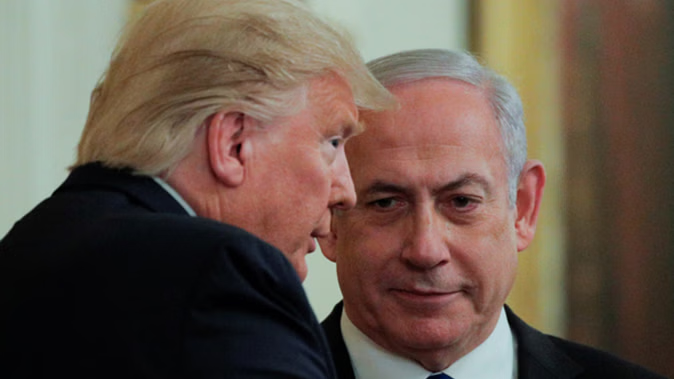Israel-US Relations: Trump Administration Approves $6 Billion Weapons Sale to Israel Amid Escalating Conflict and Ceasefire Stalemate
The Trump administration has formally approved a major arms deal with Israel, valued at nearly $6 billion (approximately ₹50,000 crore), even as ceasefire efforts in the region face growing challenges. The proposed weapons package, which has already been communicated to the U.S. Congress, underscores Washington’s continued military support for its closest ally in the Middle East despite mounting global criticism over Israel’s ongoing war in Gaza.
This development comes at a critical moment. The conflict between Israel and Hamas, now approaching its two-year mark, has escalated sharply in recent weeks. Efforts by Washington to mediate a truce or broker a lasting ceasefire have largely stalled, leaving both sides entrenched in violent hostilities. The timing of the deal highlights the delicate balance the U.S. is attempting to strike between advocating for peace and maintaining its long-standing strategic alliance with Israel.
Breakdown of the Arms Package
Under the newly approved deal, the United States will supply Israel with a wide range of advanced military hardware. The package includes 30 AH-64 Apache attack helicopters estimated at $3.8 billion, along with 3,200 infantry armored vehicles worth $1.9 billion. These weapons are scheduled to be delivered gradually over the next two to three years, with the possibility of longer timelines depending on production and logistical considerations.
Military analysts suggest that such an extensive arms package is designed not only to strengthen Israel’s operational capacity but also to send a clear message about continued American backing, even as Israel’s military actions in Gaza attract heavy scrutiny.
Growing International Criticism
The announcement has drawn sharp reactions globally. Israel has been facing increasing international condemnation for its conduct in Gaza, where civilian casualties and humanitarian concerns have alarmed human rights groups and several allied nations. The situation escalated further after Israel launched strikes targeting Hamas leaders in Doha, Qatar, an action that sparked strong criticism from U.S. partners in the Middle East.
Despite this criticism, Washington appears determined to press ahead with the deal. The Trump administration maintains that bolstering Israel’s defense capabilities remains a cornerstone of U.S. foreign policy in the region, regardless of diplomatic tensions or calls for restraint.
Continued U.S. Support
This $6 billion package is not an isolated case. The Trump administration has already authorized nearly $12 billion in military aid to Israel in the current year alone. In June, the U.S. signed another agreement worth $500 million, which included bomb guidance kits and other precision weapons systems. Such consistent aid reflects a broader U.S. strategy of reinforcing Israel’s security framework while simultaneously trying—though with limited success—to mediate peace in the region.
Conclusion
In summary, the $6 billion arms deal between the U.S. and Israel highlights Washington’s unwavering support for its ally amid one of the deadliest and most prolonged conflicts in the region in recent years. While the deal may provide Israel with enhanced military strength, it also raises questions about the U.S.’s role in balancing security commitments with peace-building efforts. With international criticism intensifying and mediation talks stalled, the approval of this arms package signals a clear continuation of U.S. policy: standing firmly behind Israel, even in the face of growing global pressure.
